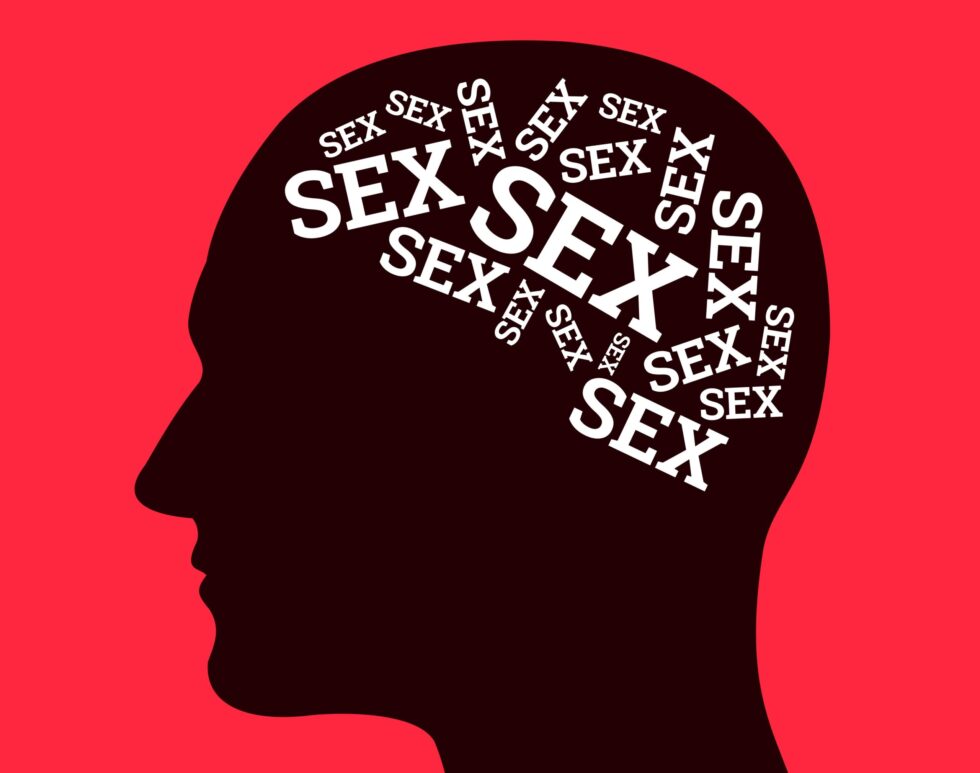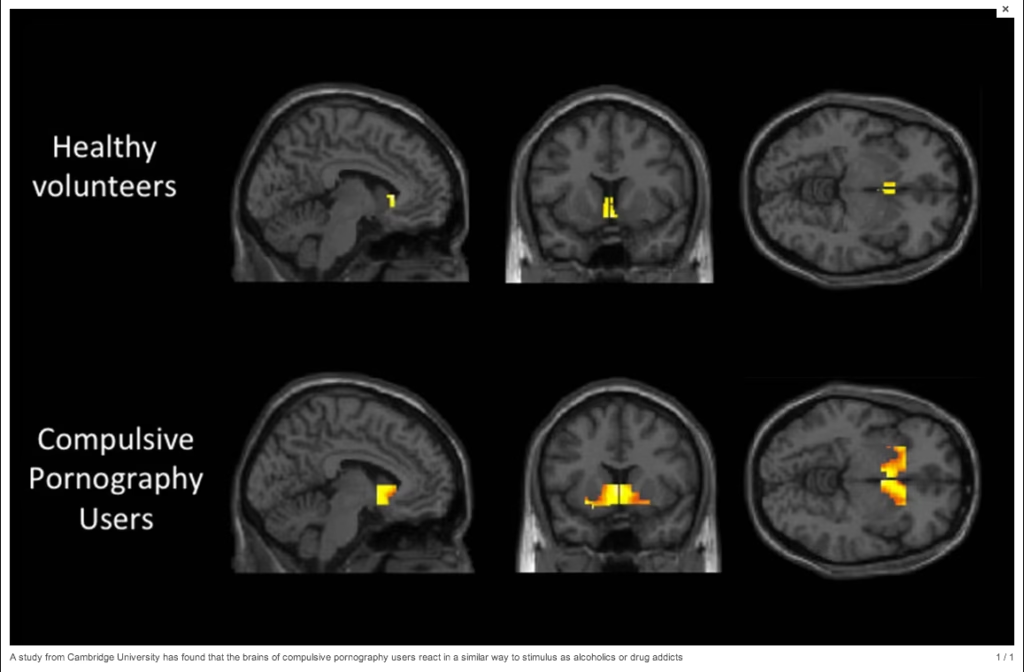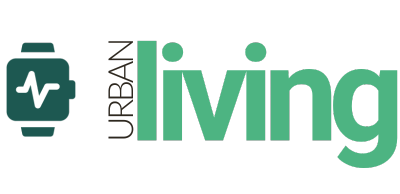Sexual addiction, also known as hypersexuality or compulsive sexual behavior disorder, represents a growing concern in Singapore’s modern society.
This behavioral condition involves an overwhelming preoccupation with sexual thoughts, fantasies, and activities that significantly interfere with daily functioning and relationships.
Unlike substance addictions, sexual addiction presents unique treatment challenges since complete abstinence from sexual activity is neither realistic nor healthy for most individuals.
The prevalence of sexual addiction in Singapore has been steadily increasing, supported by the growing presence of support groups like Sex and Love Addicts Anonymous (SLAA) and observations from healthcare professionals.
However, due to cultural taboos surrounding sexuality, many Singaporeans remain unaware of available treatment options or struggle to recognize the signs of this condition.
Related article: Pornography Addiction Treatment in Singapore
Understanding Sex Addiction: The Clinical Perspective

Sexual addiction stems from dysfunction in the brain’s reward circuitry, similar to substance addictions.
The condition affects approximately 3% to 10% of the general population, with men being more commonly affected than women.
Research indicates that for every two to five males diagnosed with hypersexuality, one woman experiences the condition.
The average age of onset is 18 years, though most individuals don’t seek professional help until age 37.
This delay often occurs because sexual addiction can be difficult to recognize and diagnose, particularly in a society where sexual topics remain sensitive subjects.
You might like: Psychotherapy in Singapore: Types, Benefits, and How to Get Started
The Neurological Basis

Sexual addiction involves alterations in brain chemistry, particularly affecting neurotransmitters like dopamine, norepinephrine, and serotonin.
These chemical imbalances can result in increased sexual desire and compulsive behaviors.
Additionally, conditions affecting brain areas that control sexual behavior, such as damage to the frontal lobe, amygdala, or prefrontal cortex, may contribute to the development of hypersexual behaviors.
Related article: Complete Guide to Depression Therapy in Singapore
Ten Categories of Sex Addiction
Sexual addiction manifests in various forms, each with distinct characteristics and behavioral patterns:
| Category | Description |
|---|---|
| Anonymous Sex | Compulsive desire for sexual encounters with strangers |
| Fantasy-Based | Sexual feelings replaced by obsession with fantasies |
| Intrusive Sex | Achieving arousal through non-consensual touching |
| Voyeuristic Behavior | Obsession with secretly watching sexual activities |
| Exhibitionist | Sexual pleasure from public exposure or sex |
| Paid Sexual Services | Avoiding genuine connection through commercial sex |
Common Behavioral Patterns Include:

- Multiple unknown sexual partners and public sexual activities
- Excessive time spent in sexual fantasies affecting real relationships
- Workplace harassment and abuse of power positions
- Regular use of commercial sexual services
- Exploitative behaviors targeting vulnerable populations
Recognizing the Signs and Symptoms
Sexual addiction manifests through various behavioral, emotional, and psychological indicators.
Understanding these signs is crucial for early identification and intervention.
This might help: Which Psychologist in Singapore Should You Consider? (Sort by Reviews)
Behavioral Indicators
Individuals experiencing sexual addiction often display specific behavioral patterns that indicate loss of control over sexual activities.
These behaviors typically escalate over time and continue despite negative consequences.
Key warning signs include:
- Excessive time spent planning sexual activities that interferes with work and relationships
- Problematic pornography consumption and compulsive searching for sexual content
- Frequent masturbation, sometimes to the point of physical injury
- Lying about sexual activities and neglecting important responsibilities
- Financial problems due to spending on sexual services or entertainment
Related article: Comprehensive Guide to Drug Addiction Treatment in Singapore
Emotional and Psychological Symptoms
The emotional impact of sexual addiction creates significant distress and mental health challenges:
- Intense feelings of guilt, shame, and remorse following sexual activities
- Powerlessness over behaviors leading to hopelessness and depression
- Anxiety and fear regarding potential discovery of behaviors
- Escalation to more extreme behaviors as previous activities lose satisfaction
- Social withdrawal and isolation from friends and family members
Consequences of Untreated Sex Addiction
The ramifications of unaddressed sexual addiction extend far beyond the individual, affecting multiple areas of life and potentially causing lasting damage to relationships, careers, and personal well-being.
Relationship and Social Impact
Sexual addiction severely impairs the ability to form and maintain healthy, meaningful relationships.
Partners often experience betrayal trauma, leading to damaged trust and emotional distress.
Family relationships suffer as the addiction consumes increasing amounts of time, energy, and attention.
Social isolation frequently occurs as individuals withdraw from friends and family to hide their behaviors or to have more opportunities to engage in addictive activities.
Professional relationships may also suffer, particularly if workplace boundaries are violated or if sexual behaviors interfere with job performance.
Related article: Alcohol Addiction Treatment in Singapore
Health and Legal Consequences
Sexual addiction can lead to serious physical, financial, and legal complications:
- Exposure to sexually transmitted infections including HIV and hepatitis
- Legal complications from public sexual activities and harassment behaviors
- Financial problems from spending on commercial sexual services
- Career damage from workplace incidents or criminal convictions
- Potential imprisonment for serious sexual offenses
Mental Health Complications
Sexual addiction frequently co-occurs with other mental health conditions.
Research indicates that 88% of individuals with sexual addiction have a history of other mental health disorders, including mood disorders, anxiety disorders, and bipolar disorder.
The shame and guilt associated with sexual addiction can lead to severe depression and hopelessness. Some individuals develop suicidal ideation, particularly when facing significant consequences from their behaviors or when feeling trapped by their addiction.
Related article: Anxiety Therapy in Singapore: Treatment and Recovery
Treatment Options for Sex Addiction in Singapore
Singapore offers both outpatient and inpatient treatment options for sexual addiction, each designed to meet different needs and circumstances.
Outpatient Treatment Programs
Outpatient treatment allows individuals to maintain their daily responsibilities while receiving specialized care.
This approach works well for high-functioning individuals who can manage their addiction within the context of their regular routines.
Treatment typically includes individual counseling sessions, group therapy, and educational components about addiction and recovery.
The Recovery Zones treatment model is particularly effective for sexual addiction, as it focuses on awareness of triggers and personal recovery criteria rather than complete abstinence.
Outpatient programs offer flexibility for those unable to take extended leave from work or family commitments.
Sessions can be scheduled around existing obligations, making treatment more accessible for many individuals.
Residential Inpatient Treatment
For individuals whose environment contains too many triggers or obstacles to recovery, residential treatment provides intensive, around-the-clock care. Inpatient facilities offer several advantages for sexual addiction treatment.
The controlled environment removes access to triggers and negative influences while providing constant support and supervision.
Complete immersion in recovery allows for intensive focus on healing without the distractions and temptations of daily life.
Residential treatment is considered the gold standard for addiction treatment due to its comprehensive approach and higher success rates.
The combination of individual therapy, group sessions, educational components, and 24-hour support creates an optimal environment for recovery.
Therapeutic Approaches and Medications
Effective treatment for sexual addiction typically involves a combination of psychotherapy, medication management, and support group participation.
Psychotherapy Modalities
Cognitive Behavioral Therapy (CBT) represents the primary therapeutic approach for sexual addiction treatment.
This method focuses on identifying and changing negative thought patterns and behaviors that contribute to addictive sexual activities.
Clients learn alternative coping strategies and develop skills to manage urges and triggers.
Acceptance and Commitment Therapy (ACT) uses mindfulness and acceptance strategies to help individuals develop a different relationship with their thoughts and urges.
Rather than attempting to eliminate sexual thoughts entirely, ACT helps people accept distressing thoughts while choosing behaviors aligned with their values.
Motivational Interviewing guides individuals through exploring their sexual addiction within the context of their personal goals and values. This approach helps people develop internal motivation for change rather than relying solely on external pressure.
Medication Management
While no medications are specifically approved for sexual addiction treatment, several classes of drugs have shown effectiveness in managing symptoms and co-occurring conditions.
Selective Serotonin Reuptake Inhibitors (SSRIs) are considered first-line treatment for sexual addiction.
These antidepressants can help reduce obsessive sexual thoughts and compulsive behaviors while addressing any underlying depression or anxiety.
Anti-androgen medications may be prescribed in severe cases where behaviors pose danger to others.
These medications reduce sex drive by targeting male hormones, though they are typically reserved for extreme situations.
Naltrexone, originally developed for alcohol and opioid addiction, has shown promise in treating sexual addiction by blocking reward pathways in the brain.
Mood stabilizers may be helpful for individuals with co-occurring bipolar disorder or impulsive features.
Support Group Participation
Support groups play a crucial role in sexual addiction recovery, providing peer support, accountability, and shared experiences.
Singapore has several active support groups, including Sex Addicts Anonymous, Sexaholics Anonymous, and Sex and Love Addicts Anonymous.
These groups follow the 12-step model adapted from Alcoholics Anonymous, providing structure and community for individuals in recovery.
Regular attendance helps maintain motivation, provides coping strategies, and reduces the isolation often associated with sexual addiction.
The Current Landscape in Singapore
Sexual addiction in Singapore faces unique cultural and social challenges that affect both recognition and treatment of the condition. The conservative approach to sexuality in Singaporean society often prevents open discussion of sexual problems, leading to delayed diagnosis and treatment.
Cultural Considerations
The taboo nature of sexual topics in Singapore creates barriers to seeking help. Many individuals struggle with shame and cultural stigma, preventing them from recognizing their condition or reaching out for professional assistance.
Healthcare providers must navigate these cultural sensitivities while providing effective treatment.
Traditional values and religious beliefs may conflict with open discussion of sexual behaviors, requiring specialized approaches that respect cultural contexts while addressing the medical reality of sexual addiction.
Treatment providers must balance cultural sensitivity with evidence-based treatment approaches.
Growing Awareness and Resources
Despite cultural challenges, awareness of sexual addiction is growing in Singapore. The establishment of support groups and specialized treatment facilities indicates increasing recognition of the condition’s legitimacy and the need for appropriate care.
Healthcare professionals report steady increases in individuals seeking help for sexual addiction, suggesting that awareness campaigns and reduced stigma are having positive effects.
The availability of confidential treatment options helps individuals feel more comfortable seeking assistance.
Media coverage and public education efforts are gradually increasing understanding of sexual addiction as a legitimate medical condition rather than a moral failing.
This shift in perception encourages more people to seek appropriate professional help.
Prevention and Management Strategies
While not all cases of sexual addiction can be prevented, certain strategies can reduce risk and help manage existing conditions.
Risk Reduction Approaches
Preventing sexual addiction involves addressing multiple risk factors and underlying conditions:
- Education about sexual addiction and healthy sexuality
- Managing co-occurring mental health conditions like depression and anxiety
- Avoiding substance abuse which reduces impulse control
- Building healthy coping mechanisms for stress and emotional regulation
- Developing strong support networks and meaningful relationships
Personal Management Techniques
Individuals can take proactive steps to manage sexual addiction risk and support their recovery:
- Identifying and avoiding personal triggers
- Creating structured daily routines with meaningful activities
- Technology management including blocking pornography websites
- Building meaningful social connections and support networks
- Regular participation in therapy sessions or support group meetings
Professional Support and Resources
Singapore offers various professional resources for individuals struggling with sexual addiction, ranging from specialized treatment centers to support groups and educational programs.
Healthcare Provider Selection
Choosing qualified healthcare providers with experience in sexual addiction treatment is crucial for successful recovery.
Look for therapists, counselors, and psychiatrists who specialize in addiction treatment and have specific training in sexual addiction.
Verify credentials and experience with sexual addiction treatment specifically, as general addiction training may not address the unique aspects of this condition.
Ask about treatment approaches, success rates, and availability of specialized programs.
Consider cultural competency and comfort level with discussing sexual topics openly.
The therapeutic relationship is crucial for successful treatment, particularly given the sensitive nature of sexual addiction.
Ongoing Support Systems
Long-term recovery requires ongoing support systems beyond initial treatment.
Regular therapy sessions, support group participation, and check-ins with healthcare providers help maintain progress and prevent relapse.
Family and partner involvement in treatment often improves outcomes by addressing relationship damage and providing additional support for recovery. Couples therapy may be beneficial for rebuilding trust and intimacy.
Professional networks and peer support provide ongoing encouragement and accountability.
Maintaining connections with others in recovery helps sustain motivation and provides practical support for managing challenges.
Frequently Asked Questions
What exactly is sex addiction and how is it different from having a high sex drive
Sex addiction, also known as hypersexuality or compulsive sexual behavior disorder, goes far beyond having a high sex drive.
While individuals with naturally high libidos can control their sexual behaviors and maintain healthy relationships, those with sex addiction experience an overwhelming compulsion to engage in sexual activities despite negative consequences.
The key difference lies in the loss of control and the resulting damage to relationships, work, finances, and overall well-being. Sexual addiction involves persistent, escalating behaviors that continue even when they cause significant problems in multiple areas of life.
How common is sex addiction in Singapore and who is most at risk
Sexual addiction affects approximately 3% to 10% of the general population in Singapore, mirroring global statistics.
Men are disproportionately affected, with studies showing that for every two to five males with hypersexuality, one woman experiences the condition.
The typical age of onset is around 18 years, though most individuals don’t seek professional help until age 37.
Risk factors include having other mental health conditions such as depression, anxiety, bipolar disorder, or a history of trauma, as well as substance abuse problems and certain neurological conditions.
What are the main signs that someone might have a sex addiction
The primary indicators of sex addiction include spending excessive time planning or engaging in sexual activities, being unable to control sexual urges despite repeated attempts, continuing sexual behaviors despite negative consequences, and experiencing significant distress or impairment in relationships, work, or other important areas of life.
Other warning signs include lying to family members about sexual activities, using sex to cope with negative emotions, engaging in increasingly risky sexual behaviors, and feeling guilt, shame, or depression after sexual activities.
The behavior typically escalates over time and interferes with daily responsibilities and commitments.
Can sex addiction be successfully treated and what does recovery look like
Yes, sex addiction can be effectively treated with proper professional intervention and commitment to recovery.
Treatment typically involves a combination of psychotherapy, medication management when appropriate, and support group participation. Unlike substance addictions, the goal is not complete abstinence but rather developing healthy sexual behaviors and eliminating problematic patterns.
Recovery involves learning to identify and manage triggers, developing healthy coping mechanisms, repairing damaged relationships, and maintaining ongoing support systems.
Success rates improve significantly with comprehensive treatment that addresses underlying mental health conditions and involves family or partner support when appropriate.
What types of therapy are most effective for treating sex addiction
Cognitive Behavioral Therapy (CBT) is considered the gold standard for sex addiction treatment, focusing on identifying and changing negative thought patterns and behaviors that contribute to addictive sexual activities.
Acceptance and Commitment Therapy (ACT) uses mindfulness strategies to help individuals develop a healthier relationship with their thoughts and urges.
Motivational Interviewing helps people explore their addiction within the context of their personal values and goals. Group therapy and 12-step programs provide peer support and accountability.
Many treatment programs combine multiple therapeutic approaches for maximum effectiveness, tailoring the treatment plan to each individual’s specific needs and circumstances.
Are there medications that can help with sex addiction treatment
While no medications are specifically approved for sex addiction, several types of drugs have shown effectiveness in managing symptoms.
Selective Serotonin Reuptake Inhibitors (SSRIs) are commonly prescribed as first-line treatment to help reduce obsessive sexual thoughts and compulsive behaviors.
Anti-androgen medications may be used in severe cases to reduce sex drive, particularly when behaviors pose danger to others.
Naltrexone, originally developed for alcohol and opioid addiction, can help block reward pathways in the brain.
Mood stabilizers may be beneficial for individuals with co-occurring bipolar disorder or impulsive features. Medication management should always be combined with psychotherapy for optimal results.
How does sex addiction affect relationships and can they be repaired
Sex addiction severely impacts relationships through broken trust, emotional betrayal, and often leads to separation or divorce if left untreated. Partners frequently experience betrayal trauma, which can result in symptoms similar to post-traumatic stress disorder.
However, relationships can be repaired with proper treatment that includes both partners. Couples therapy specifically designed for sexual addiction helps rebuild trust, improve communication, and establish healthy boundaries.
The recovery process requires complete honesty from the addicted partner, patience and support from the non-addicted partner, and professional guidance to navigate the complex emotional challenges involved in healing the relationship.
What should family members know about supporting someone with sex addiction
Family members should understand that sex addiction is a legitimate medical condition, not a moral failing or lack of willpower.
Supporting a loved one requires setting healthy boundaries, avoiding enabling behaviors, and often participating in family therapy or support groups designed for families affected by addiction.
It’s important for family members to take care of their own emotional and mental health while supporting their loved one’s recovery.
Education about the condition helps family members understand the complexity of sexual addiction and the recovery process.
Professional guidance can help families navigate the challenges of supporting someone in recovery while maintaining their own well-being.
How long does treatment for sex addiction typically take
The duration of sex addiction treatment varies significantly depending on individual circumstances, severity of the condition, and commitment to recovery.
Initial intensive treatment may last several months, but recovery is typically a lifelong process requiring ongoing management.
Outpatient therapy may continue for one to two years or longer, with decreasing frequency as progress is made. Residential treatment programs typically last 30 to 90 days, followed by ongoing outpatient support.
Many individuals benefit from long-term participation in support groups and periodic check-ins with therapists.
The goal is not to complete treatment and be “cured,” but rather to develop lifelong skills and support systems for maintaining healthy sexual behaviors.
What is the difference between outpatient and inpatient treatment for sex addiction
Outpatient treatment allows individuals to continue their daily responsibilities while receiving therapy, making it suitable for high-functioning individuals who can manage their addiction within their regular routines.
Sessions are typically scheduled around work and family commitments, providing flexibility for those unable to take extended leave. Inpatient treatment provides 24-hour care in a controlled environment, removing access to triggers and providing intensive focus on recovery.
Residential programs offer complete immersion in treatment, group support, and structured environments that eliminate distractions and temptations.
Inpatient treatment is often recommended for individuals with severe addictions, multiple failed outpatient attempts, or those whose home environment contains too many triggers for successful recovery.
How can someone prevent relapse after treatment for sex addiction
Preventing relapse requires ongoing commitment to recovery strategies and maintaining support systems.
Key prevention strategies include identifying and avoiding personal triggers, maintaining regular therapy sessions or support group attendance, and practicing healthy coping mechanisms learned in treatment.
Developing a structured routine with meaningful activities helps redirect energy away from sexual obsessions.
Technology management, including internet filters and avoiding triggering websites, provides important safeguards. Regular check-ins with healthcare providers help identify warning signs early.
Building and maintaining healthy relationships provides emotional support and accountability. Most importantly, understanding that recovery is a lifelong process and having a plan for managing urges and high-risk situations significantly improves long-term success rates.

